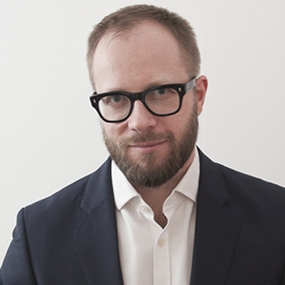Anaesthetists are doing a superhuman job, but are not superhuman

Head of Policy and Public Affairs, Royal College of Anaesthetists
Working in health policy is a privilege and vocation. Over 10 years I have seen the very best of human nature and the capacity for good. So too I have better understood our frailties and the avoidable inequalities in health that persist between and within communities. Frailties so often abstracted by statistics are hiding those at their most sensitive and vulnerable. To work in health policy is to recognise the full weight of the responsibility to give a voice to those behind the statistics. A responsibility no clearer to me than today, as we face COVID-19.
As the crisis has deepened, so the lines between doctor and patient have blurred. While the anaesthetists I have the privilege to represent as Head of Policy and Public Affairs at the College are doing a superhuman job, they are not superhuman. At once, they are clinicians caring for their patients, and at the same time people like me, with the same fears, concerns and aspirations. Only, unlike me, they work at high risk of viral exposure and transmission treating critically ill patients, while I write this blog in the comfort of my home.
At time of writing, more than 100 healthcare workers have died in the UK since the outbreak began, with a disproportionately high rate of BAME individuals among those who have died.
It is testament to the vocation of our anaesthetists and their dedication to put their patients first, that under such intense pressure nearly half who took part in a recent COVID-19 full membership survey perceive morale within their team as ‘high’ or ‘very high’. This speaks to the way in which anaesthetists are working together as part of multidisciplinary teams. And, it speaks to how well anaesthetists feel their mental health at work is being supported, with over two-thirds rating the support they are currently receiving as ‘high’ or ‘moderate’.
However, sustaining this level of morale depends on continuing to ease the strain of COVID-19 on the NHS. A strain that at time of writing is placing over one in ten anaesthetists at risk of burnout, and over two thirds under a high degree of pressure. One-third have felt physically unwell while four in ten have felt mental distress during the month previous to the survey as a direct result of COVID-19 pressures. There is a real risk that some may suffer long-term effects to their health, such as PTSD. Never has there been a greater moment to ensure that decision makers at the highest level of Government and in the NHS hear their voice.
That’s why it is so important that we at the College engage regularly with our combined 23,000 members. Without understanding, in real-time, their ‘view from the frontline’ we can’t make the case where it matters for sufficient supply of, and access to, the resources and guidance they need to mitigate the pressures they face. Responding to our first 24-hour snapshot survey, which took place on 15-16 April, our members told us about their ongoing and serious concerns around personal protective equipment, COVID-19 testing, and anaesthetic drug supply.
We’re actively presenting these concerns to ministers, civil servants, parliamentarians, NHS leaders and our partners. The weight of statistical and factual information our survey offers is enabling us to lobby for change, to enhance the reputation and profile of the speciality and to deliver compelling media communications. We’re doing all that we can to ensure our anaesthetists are supported to do their lifesaving work as effectively as possible.
We’re calling on our members’ help once again, to complete our next survey. This second survey will help us to understand the progress that has been made over the last month and where the critical gaps remain. If you’re a College member, please check your inbox for the survey on Wednesday 13 May.
Mark Weiss
